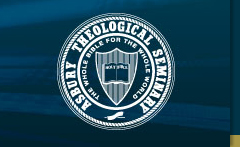Files
Download Full Text (88 KB)
Summary
1. To examine the development of United Methodist polity from a historical and theological perspective: a. To understand the implicit and explicit structural expressions of ecclesiology. b. To become familiar with the nature and implications of connectionalism and itinerancy for ministry. c. To understand the annual conference as the basic unit of The United Methodist Church. d. To study and understand the covenantal relationship between ministers (lay, diaconal and ordained) in The United Methodist Church. 2. To use the Discipline and the Book of Resolutions as working handbooks for mission and ministry. a. To understand the process by which leaders and selected. b. To gain a knowledge of the selection, deployment, evaluation and termination of clergy. c. To become familiar with the decision-making process at all levels of the church. d. To become aware of the required structure and alternative organization of the local church. e. To examine connectionalism in relationship to church property. f. To understand the judicial structures, the appeal and review process. g. To gain an awareness of the role and functioning of the general boards and agencies. h. To understand the role of caucuses and special groups. i. To perceive the nature of ecumenical relationships.
Publication Date
January 2002
Publisher
Asbury Theological Seminary
Keywords
Methodism, Florida, CL553, Spring
Language
English

